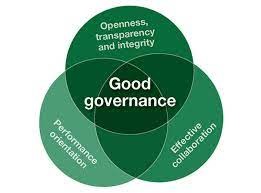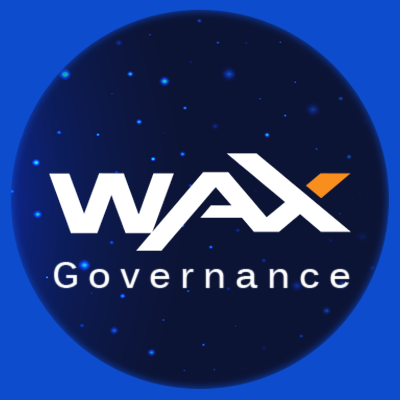I. What is Governance?
Governance is how organizations operate, make decisions, and hold themselves to account.
The basic elements are ethics, compliance, risk management, and financial probity. Good governance is when the best outcomes are achieved at minimum cost and maximum efficiency and transparency with the agreement of the stakeholders.

II. How Did Governance Become Important?
i. Decentralization
Old-style enterprise governance requires a board of directors, auditors, and teams of lawyers and accountants to submit corporate tax returns and plan (or fight off) hostile takeovers.
Blockchain now enables new automated models for decentralized, global business.
ii. WAX Governance
WAX uses the DPoS (Delegated Proof of Stake) consensus algorithm that maintains and validates immutable agreements and transactions, trustlessly.
This requires the whole WAX community to vote in real-time for the best BPs (Block Producers) based on a monthly report issued by the Office of the Inspector General OIG, which is an automated analysis of performance and other technical criteria.
III. Why Does Governance Matter?
Good governance should minimize corruption and inefficiency by the executives above and harness the effort and energy of the user community below. Both strengthen the overall ecosystem – reducing costs and improving the UX (User eXperience) – a reward in itself.
If the whole community is actively engaged, only the best Block Producers (BPs) get voted in. Conversely, inefficient BPs are voted out. The motive for BPs to be selected is simple: they get their own extra WAX token rewards for producing blocks on time and for contributing positively to the development of the protocol. It’s win-win tokenomics!
But in the case of WAX, the benefits are even more concrete.
i. More reliable, faster service
BPs are under pressure to maintain a good reputation and minimize outages, errors, and missed block production targets. Also, validation of the blockchain via DPoS is much faster and less expensive than other blockchains that use the PoW (Proof of Work) method.
ii. Cheaper transaction costs
By allowing users to stake their unused WAX tokens in CPU and NET basic resources, the system manages to maintain a free ‘liquidity pool’ of system resources to spread costs for all users, thus avoiding crazy ‘gas fees’ that are common with platforms such as Ethereum.
iii. WAX Staking rewards – free tokens!
By staking and voting, the WAX governance keeps the whole system healthy and also rewards stakers with free tokens. This is part of the WAX ‘win-win’ tokenomics model.

iv. Profitable investments
Thanks to the balance of incentive and reward in the governance model, the WAXP token itself remains a profitable investment option thanks to the massively engaged community.
v. Support a greener blockchain
The DPoS consensus algorithm is far less energy-intensive than other PoW blockchains such as Bitcoin and Ethereum. There is no crypto mining operation.
vi. Build a community, democratically
Blockchain consensus is reached digitally by all users. The performance of each guild is transparent and there are no resources wasted on expensive teams of auditors and lawyers to prove compliance and probity.
IV. How Do I Get Involved?
Our previous article showed how you can use your WAX Cloud Wallet or the Bloks.io explorer to get staking and voting. Every month your votes influence the selection of the top 21 block-producing guilds.
Other articles show how to stay on top of WAX via Social Media and find out about new initiatives and emerging plans. Get active and engaged, and be part of the solution!
V. Summary
We have had a quick look at governance in WAX. The more often, and the more regularly, you stake and vote, the more Staking Rewards you will earn!
WAX is not just ‘The King of the NFTs’, it is also about building virtual communities that have a say and control over the means and governance of digital distribution.

